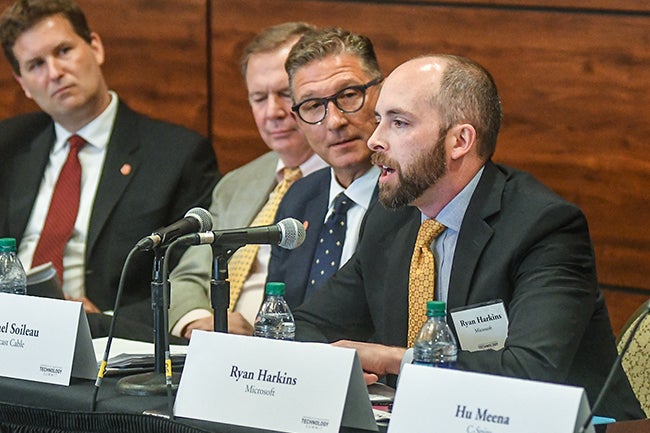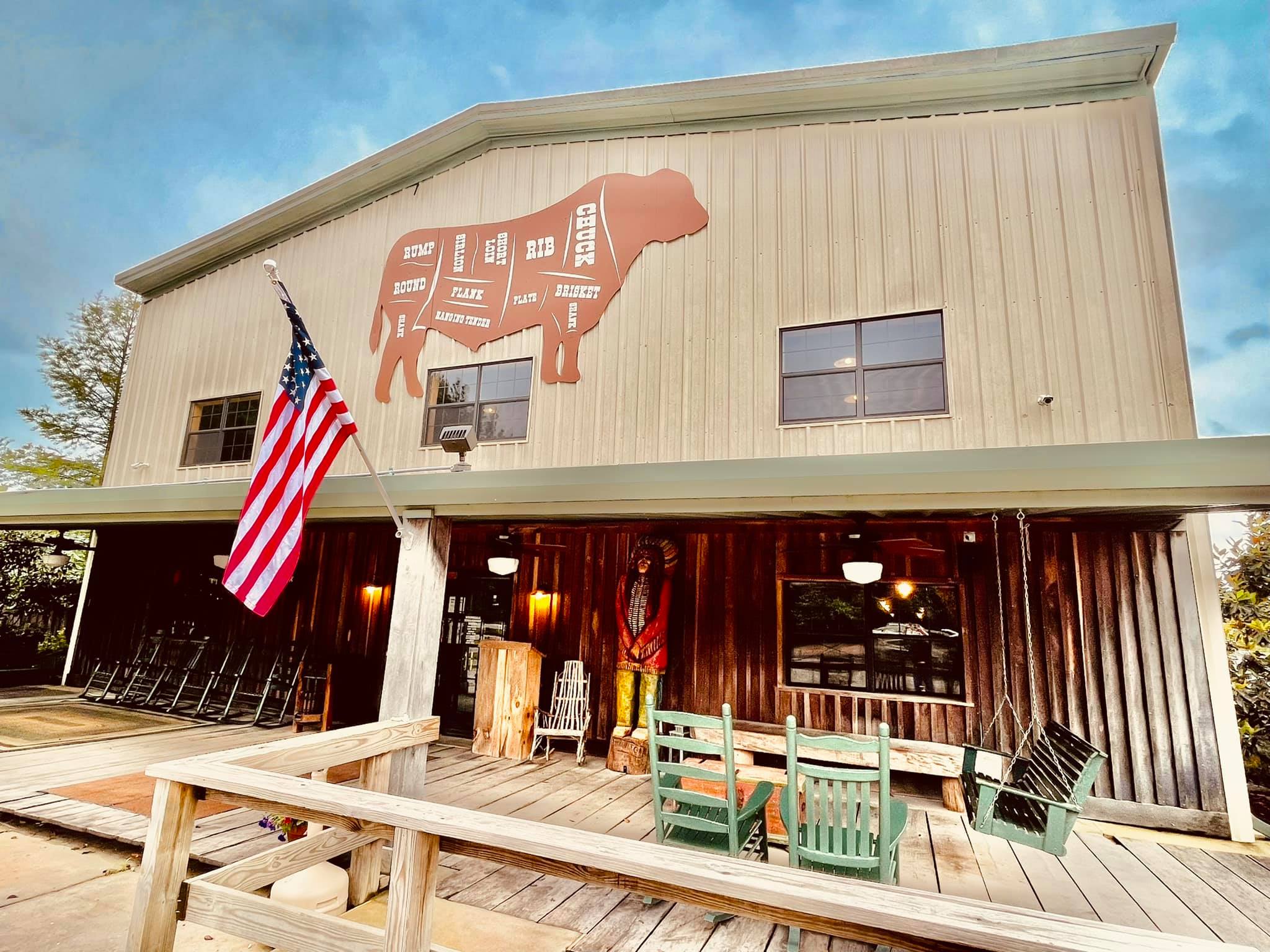Tech Summit brings leaders together to discuss STEM jobs, other projects
Published 9:50 am Thursday, August 31, 2017

- Ryan Harkins of Microsoft speaks at the Tech Summit at the Inn at Ole Miss in Oxford, Miss., on Wednesday, August 30, 2017. The summit brought together leaders in the technology industry and representatives of government and other agencies to discuss trends and advancing opportunities for STEM education in Mississippi.
Ole Miss Chancellor Dr. Jeff Vitter can talk tech all day long.
He’s a computer scientist after all, with degrees from esteemed places Notre Dame, Stanford and Duke. He enjoys tackling big data and algorithms and significant challenges that can make life better for others, so he’s quite comfortable sitting at the round-table with some of the top tech leaders in the state and U.S.
That was the scene on the Ole Miss campus Wednesday when Dr. Vitter joined more than a dozen regional and national technology experts and leaders including the likes of Netscape co-founder Jim Clark and Nicholas Degani, senior counsel for the FCC.
They gathered for the second annual University of Mississippi Technology Summit, to engage and explore how industry, government, and education can work together synergistically to serve the needs of Mississippi, the U.S. and the greater world.
The first Ole Miss tech summit, held last year, was the idea of Sen. Roger Wicker of Mississippi. He was back again this year, joining Dr. Vitter and others in conversations about the possibility and the university’s role in that possibility.
“I want this university to be a national leader in STEM (science, technology, engineering, and mathematics) education and build upon our status as an R1 designation (for research activity by the Carnegie Classification of Institutions of Higher Education). We want to be a partner with great companies. We want to create employees who are leaders in the tech industry,” Dr. Vitter said.
“We want to provide world class research to help us thrive in the new tech economy.”
At the ground level, it is about continuing to move the University of Mississippi forward, using collaborate education and research as a launching point that serves a larger goal of lifting up and improving lives with the advancements that only science, technology, engineering, and mathematics can deliver.
Ole Miss may be known for its football and liberal arts traditions, but that doesn’t mean that it can’t be a national STEM leader, and its forthcoming STEM building, a 207,000 square-foot facility under construction envisioned as the crown jewel of the university’s science district.
“(The STEM building) will be a stellar marquee,” Dr. Vitter said.
“Its location is going to be in a central place, across from the football stadium. I hope that in a few years, our football stadium will be known as being across from the STEM building, and that’s with our football team winning championships.”
Nobody in the room seemed to think this ambition was far-fetched. If anything, most here for the tech summit agree that Ole Miss is well positioned to stimulate Mississippi and the region by spawning more entrepreneurial companies, and more research solutions and the consistent belief is that university students and faculty are part of the answers.
That’s how Oxford’s well-documented entrepreneurial success FNC was started. The mortgage solutions technology company was founded by Ole Miss professors, creating high paying jobs and wealth in the community.
Dr. Vitter said such entrepreneurial creativity is “more and more what we want to instill” at Ole Miss.
“It’s not for every student, and it’s not for every faculty member,” he said. “But we want to bring down barriers to spark creativity to fill FNC Park with even more companies than we now have.”
If it all sounds positively dazzling, it is. There’s no secret that the future economic growth of the Oxford area and the future economic growth of Mississippi and beyond will have to be fueled by technology and entrepreneurial creativity. It’s the best way to create lasting, substantive change that can improve lives from the Delta to the Gulf of Mexico and beyond.
It’s also no secret that Ole Miss holds a magical key to unlocking so much potential in the decades to come, emerging as a STEM leader that launches this creative legacy.
Dr. Vitter has a good grasp on what’s needed and how to get there. He has plans to inspire cross-functional teamwork across the university and with stakeholders including corporations so fuel the momentum.
“We want to push the frontier of knowledge,” he said.





